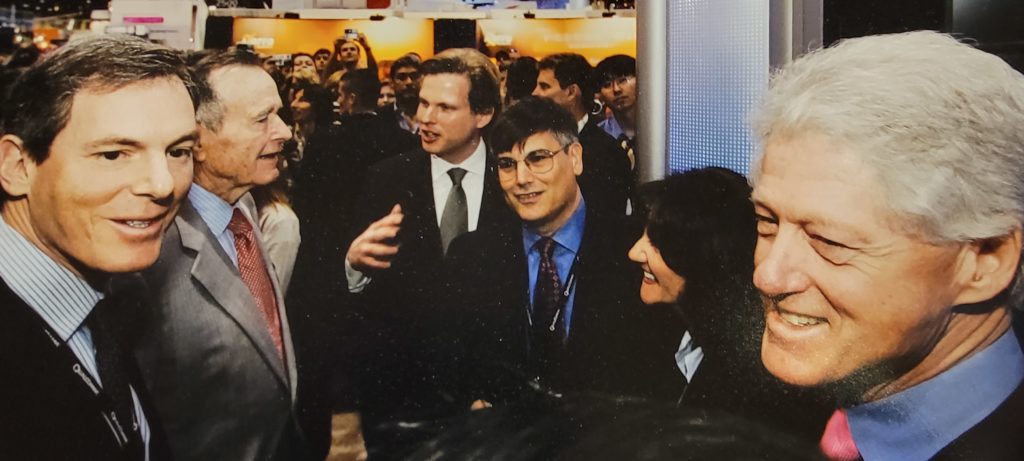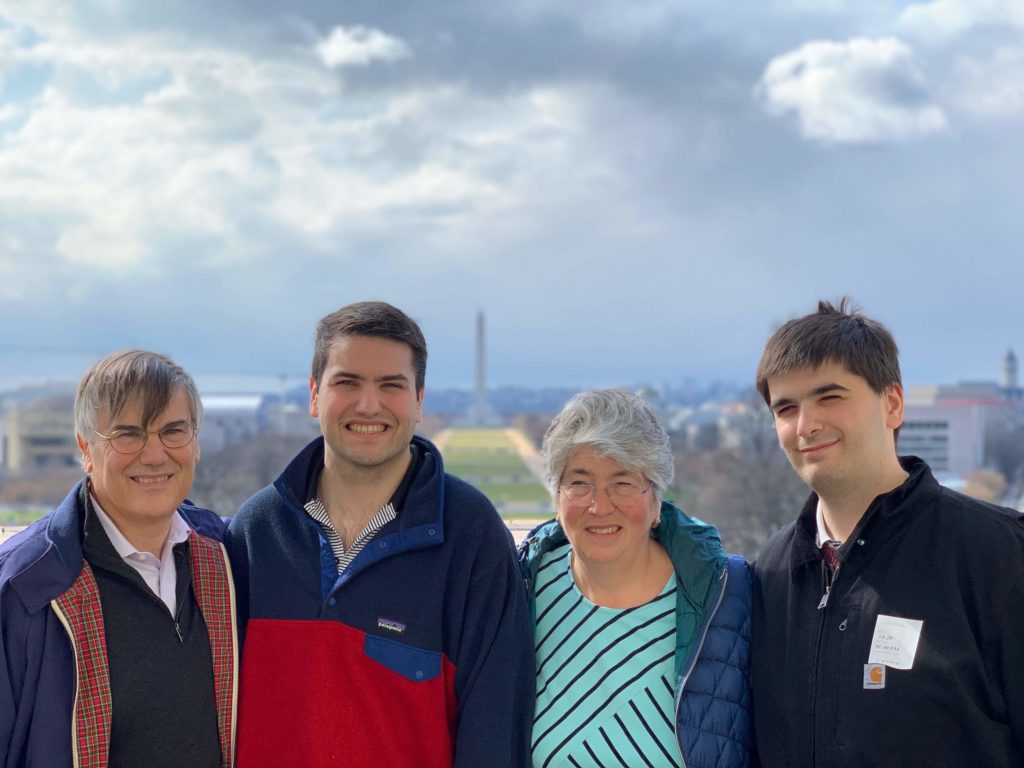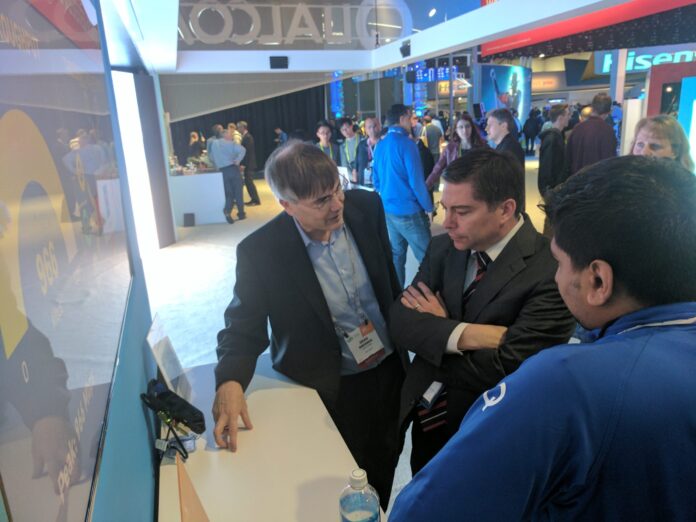Qualcomm public policy advocacy work focused on “the rapid, broad proliferation of new wireless technologies” and equity
“I have this theory of Qualcomm,” Dean Brenner told me on a recent video conference. “When I came on in 2003, I thought I knew everything about Qualcomm. I didn’t think I was going to be meeting thousands of new people. I had no appreciation for what a challenge it is in a big company to constantly digest an information flow that almost never stops. In that giant, never-ending stream of information, who has what you feel is most valuable? Everyone is doing their job but I really feel there are about 1,000 people in the company that make the company go. Oddly, they’re not the 1,000 people with the highest titles, they’re not the 1,000 people who have been around the longest. Figuring out who those 1,000 people are and knowing that I could really get great information from them, that’s really stuck with me.”
On Dec. 2, Brenner will leave his post of senior vice president for spectrum strategy and technology policy. He’s tasked with, as he described it, “marrying good public policy with advancing the company’s business interests. I’m trying to work at the intersection of those two ideas. My job is to be as forceful and as skillful and as persuasive an advocate as I can for Qualcomm. But it always has to be excellent public policy.”
In characterizing the contours of the public policies he’s advocated for on behalf of Qualcomm, Brenner said it all boils down to “the rapid, broad proliferation of new wireless technologies that enable people to do things they’d never been able to do before. A related part, of course, of rapid, broad proliferation is equity–making sure no one is left out.”
On the day we were speaking, federal lawmakers agreed on a bipartisan infrastructure bill with substantial earmarks for broadband deployment in unserved and underserved areas. Also included are pathways for low income individuals and families to maintain connectivity and help purchase computers, tablets and the like. This is a topic Brenner is passionate about. At the height of COVID-19, when many students were put into remote learning situations whether they were prepared for it or not, Brenner reached out to me. He said what was happening was a crisis, it needed to be spotlighted and it needed to happen fast. With that, he and his colleague Alice Tornquist joined me on my podcast Will 5G Change the World? where they framed the issue, noted the urgency, and laid out concrete steps people could take to help address the issue.
“We started out at Qualcomm talking about this, believe it or not, in 2007,” he said, which goes to show that the wheels of bureaucracy turn, albeit slowly. “The thing is, with public policy, it’s really a chess match. You have to be strategic and think about three steps down the road. Anyone can have a strategy but the strategy may have a shelf life of 18 or 24 hours.”

Reflecting on other professional milestones, Brenner called out the morass that was bringing LTE into unlicensed bands typically reserved for Wi-Fi. “That was a very controversial issue. I remember what is was like in the heat of the moment. The congressional staffers convened these meetings that were sort of like debates. I was like the spokesman for the pro LTE-U side and I was arguing against 40, 50 people on the other side. They were very mad, they were very outspoken, they were convinced LTE-U was going to ruin the world.” Turns out LTE-U, then LAA, not only didn’t ruin the world but enabled carriers to significantly amp up LTE ahead of early 5G deployments. And, to the 5G point, there wasn’t any debate as to whether unlicensed would be involved; NR-U, another Qualcomm-led initiative, is baked into 3GPP standards.
“I’m sure there are a zillion things I could’ve done differently,” Brenner reflected. “I think being a good public policy advocate, being really good at your job, I think that’s a good thing to achieve in life. I also think it’s good to be a good person, to treat people with respect, to give more than you get. I hope that I didn’t ever lose perspective that what matters at the end…is being a good person, doing the right thing, treating people with kindness and respect.”
I can attest to the above. As soon as Brenner found out that my wife and I were expecting a baby, he reached out to me. When he found out my father was in hospital with what would eventually be diagnosed as a rare form of cancer, he reached out to me. He shared his own experience with losing his father Norman, who was a production supervisor on the CBS Evening News with Walter Cronkite; he died unexpectedly of a heart attack in 1981 on his way home from work.

“My dad had a fantastic career at CBS,” Brenner told me. “But he never talked to the CEO of CBS. The idea that his son would become a lawyer, report to [former Qualcomm CEO] Steve Mollenkopf, would be giving input to the CEO of a big public company, that would’ve been so far beyond what my dad would’ve imagined for me.” He added: “I could never, ever had my career without the endless, constant support of my wife Robin Shaffert and my sons Michael and Steven.”
Back to that theory. “I’m sure Qualcomm has a bright and long future. [CEO] Cristiano [Amon] is driven to succeed. And a lot of those 1,000 people that make it go, they’re there.” If you subscribe to Brenner’s theory, it is unquestionable that he’s among the 1,000-some-odd people that make the company go. His last day is Dec. 2; he’ll serve as a consultant through March. Whether his next post is at a college, non-profit or another corporation, “the bar is very high.”

